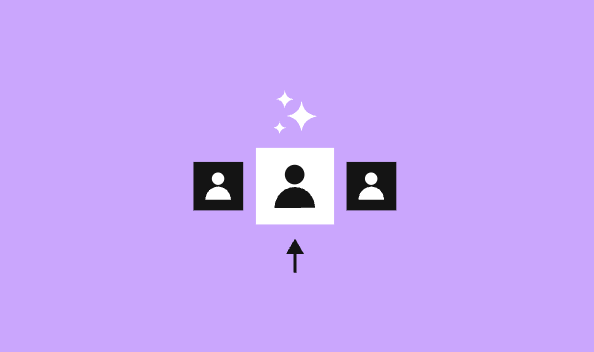Thinking about Lusha or Hunter for your team? This comparison breaks down data quality, compliance, automation, pricing, and integrations to help you decide which platform is best for your business in 2025. Lusha vs Hunter: What’s the Difference? When comparing Lusha and Hunter, the differences are clear. Lusha provides richer global data, stronger EU coverage, […]
Thinking about Lusha or Hunter for your team? This comparison breaks down data quality, compliance, automation, pricing, and integrations to help you decide which platform is best for your business in 2025.
Lusha vs Hunter: What’s the Difference?
When comparing Lusha and Hunter, the differences are clear. Lusha provides richer global data, stronger EU coverage, verified contacts, and real-time intent signals that give revenue teams an edge. Hunter offers broad functionality for email finding, but lacks the same depth of compliance, accuracy, and automation that Lusha brings to sales workflows.
Why Customers Choose Lusha Over Hunter
Customers often choose Lusha over Hunter because the platform delivers accuracy, compliance, and speed in ways that drive measurable business impact.
While Hunter is known for strong outreach capabilities, ease of use, and a broad email-finding platform, Lusha’s strengths lie in verified, first-party data that meets the highest compliance standards, including GDPR and CCPA. This gives sales and marketing teams the confidence to act on every contact.
Lusha also stands out for its simplicity. The platform is designed for plug-and-play adoption, with no steep learning curve. Teams can start generating results within days rather than weeks.
Finally, AI-driven recommendations, flexible pricing, and seamless integrations with CRMs like Salesforce and HubSpot make Lusha a cost-efficient choice that scales effortlessly across SMBs, startups, and enterprises.
Lusha vs. Seamless.ai: Features Comparison
Key features comparison
| Feature | Lusha | Hunter |
Lusha vs Hunter Data Quality and Global Coverage Comparison
Data quality and coverage remain core differences between Lusha and Hunter. Lusha delivers verified contacts, first-party data, and consistently updated records that ensure global reach and accuracy across regions, including strong coverage in Europe and the UK.
Hunter provides broad access to company and contact data, making it useful for quick prospecting, although its verification processes are less specialized than Lusha’s.
Both solutions deliver reach, but Lusha’s verified data and compliance-first approach make it the more trusted choice for high-quality contacts and dependable coverage.
Lusha vs Hunter AI and Automation Features for Sales Teams
Lusha empowers sales teams with AI-driven enrichment, lead scoring, and workflow automation that reduce manual prospecting. Lusha’s automation integrates directly into CRM workflows, enabling sales teams to focus on meaningful engagement instead of repetitive tasks.
Hunter includes automation for email finding and outreach, but the scope is narrower and less connected to broader sales productivity. While both platforms use AI, Lusha’s emphasis on personalization and workflow integration gives teams a more efficient prospecting engine.
The takeaway: both provide AI value, but Lusha turns automation into a productivity driver that accelerates sales cycles.
Lusha vs Hunter Compliance and Data Privacy Standards
Compliance and data privacy are critical factors for modern revenue teams. Lusha adheres to GDPR, CCPA, SOC 2, and ISO standards, ensuring that every contact is sourced ethically and securely. This compliance framework builds trust with customers and stakeholders alike.
Hunter maintains data privacy protections and complies with regulations, but the compliance depth and certifications are less extensive compared to Lusha. Whereas Hunter offers general safeguards, Lusha positions compliance as a core advantage.
The takeaway: both prioritize compliance, but Lusha’s global standards and transparent sourcing practices make it the more reliable choice for organizations that value data protection.
Buyer Intent Data: Lusha vs Hunter
Buyer intent data is a key differentiator. Lusha provides buyer signals powered by its partnership with Bombora, enabling revenue teams to identify high-intent accounts in real time. These insights give sales and marketing professionals a sharper view of prospects’ readiness to buy.
Hunter offers lead generation data, but intent signals are limited compared to Lusha’s Bombora-powered engine. While both support outreach, Lusha ensures precision by layering verified data with intent-driven insights.
The takeaway: both platforms provide value, but Lusha’s Bombora-backed buyer intent data makes it the more precise choice for revenue growth.
Lusha vs Hunter CRM Integrations Comparison
Lusha offers seamless integrations with major CRMs and sales tools, including Salesforce, HubSpot, Outreach, and more. These connections allow sales and marketing workflows to run smoothly, with data flowing directly into the platforms teams already use.
Hunter also supports integrations, primarily with outreach and marketing tools. However, the range and ease of use are not as extensive as Lusha’s enterprise-ready integrations.
The takeaway: both provide CRM and sales tool integrations, but Lusha’s breadth and workflow alignment make it the more efficient option for revenue teams.
Lusha vs Hunter Pricing Comparison for 2025
Pricing flexibility is another area where Lusha shines. Lusha provides transparent, flexible subscription plans that scale with team size and business needs, offering strong value for SMBs, startups, and enterprises alike.
Hunter also offers pricing plans, but they tend to be more rigid, with less customization for growth stages. While both platforms provide cost-effective options, Lusha’s model emphasizes scalability and transparency.
The takeaway: both deliver pricing options, but Lusha’s flexibility and transparency make it the smarter choice for cost-conscious teams.
What Customers Are Saying
About Lusha
“Lusha offers valuable features like advanced filters (by job title, industry, company size, etc.), intent data to identify companies actively looking for a solution, and job change alerts.” — IM Ichrak M., Cloud IT SDR, Mid-Market (link to review)
“Lusha makes it easy for me to find accurate contact details of important decision-makers in our target companies. The tool is very user-friendly and saves a lot of time for my team. The accuracy of the email addresses and phone numbers is good.” — Murtaza P., Demand Generation Manager, Small-Business (Read review on G2)
About Hunter
“It is a good tool to verify email and I really like its accuracy regarding email verification. Somehow it helps to find contact email and right domain.” — Vasudev N., Freight Broker, Mid-Market (see review on G2)
“Honestly, not much. I cancelled. I used to like the email look up, but it changed and the quality of data suffered… Many of the emails I could eventually find on websites, so this really made it not worth the time/money.” — Jessica A., Owner, Small-Business
Lusha vs Hunter FAQs
Lusha focuses on verified, GDPR-compliant B2B data with global coverage, while Hunter emphasizes broad email-finding and outreach functionality.
Both solutions serve sales and marketing professionals, but Lusha stands out for accuracy, compliance, and integrations. Hunter offers strong outreach features, whereas Lusha delivers a more complete revenue-focused solution.
Yes. Lusha is a strong alternative to Hunter, offering verified contacts, stronger compliance, and buyer intent data. While Hunter provides broad email-finding tools, Lusha adds more value for teams needing accuracy and scalability.
Both platforms are user-friendly, but Lusha is designed for simplicity and speed. Whereas Hunter may require more setup for outreach.
Lusha offers stronger data coverage in the UK and Europe, backed by GDPR-compliant sourcing and verified records. Hunter provides broad coverage, but accuracy in these regions is less consistent.
Both platforms prioritize compliance, Lusha adheres to GDPR, CCPA, SOC 2, and ISO certifications.
Yes, both platforms provide free options. Lusha offers transparent trial access and flexible subscriptions, while Hunter provides freemium usage for email searches.
Lusha scales effectively for SMBs, startups, and large enterprises with flexible pricing and integrations. Hunter is strong for SMBs but less enterprise-focused.
Lusha is an excellent choice for startups thanks to cost-efficient pricing, simple onboarding, and scalable workflows. Hunter can also support startups, but Lusha provides more flexibility as companies grow.


